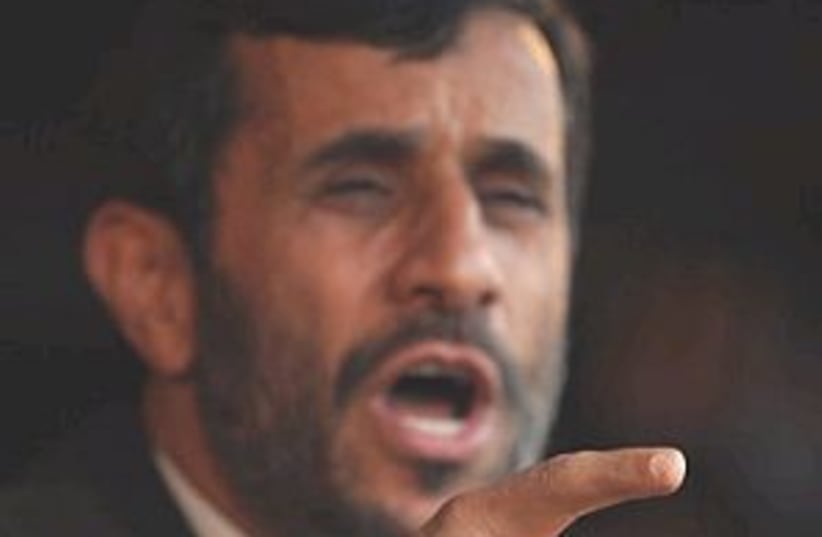| THE IRANIAN THREAT | |
| JPost.com special: news, opinion, blogs and more |
Bush: Nuclear Iran 'very destabilizing'
PM: Open to negotiations with Syria, but "impossible" while they support Hamas.


| THE IRANIAN THREAT | |
| JPost.com special: news, opinion, blogs and more |